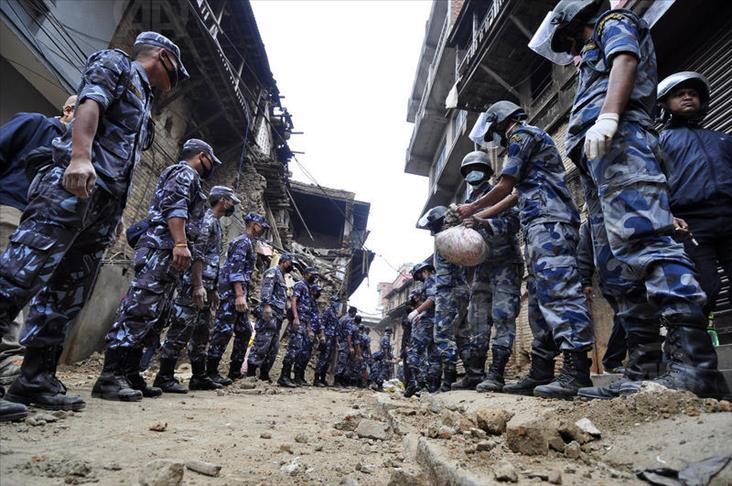
By Deepak Adhikari
KATHMANDU, Nepal
Nepal has joined its South Asian neighbors in granting a paramilitary, in this case, its Armed Police Force, extra powers.
The 35,000-strong paramilitary was founded 15 years ago to fight Maoist rebels during a decade-long civil war which ended in 2006 but last week the government amended the force's regulation, giving it powers that have prompted a turf war with the country’s main law enforcement agency.
The Armed Police Force can, according to the new rules, “use maximum force in case of disruptions on their working areas” and issue their own arrest warrants.
Home ministry spokesman Laxmi Prasad Dhakal defended the government move, saying that the previous regulations had prevented the security force from reacting to crime.
“Security personnel cannot arrest someone without an arrest warrant. The person holds the right to be informed of why he or she is being arrested. So we amended the regulation to reflect that,” Dhakal said, adding that the Armed Police Force would hand anyone arrested over to the Nepal Police.
Dhakal told Anadolu Agency that the provision to shoot applies only in case of someone trying to snatch the security force’s arms.
“By nature, the paramilitary force is half-army and half-police. It was formed when we needed such a force. Now that the war is over, we need to use the force where necessary,” he added.
Nepal is not the only country to use a paramilitary in such a way, despite controversy surrounding them and accusations that many become government tools.
Bangladesh's Rapid Action Battalion is also jointly led by the police and the army but has been accused of suppressing political opposition and carrying out extrajudicial killings. The Maldives has a similar elite force, called Special Operations, that opposition activists claim is used to enforce the government's will.
India and Pakistan have a range of paramilitary groups used to guard borders, tackle crime and fight militants but which have also been criticized for overreaching.
Nepal's Armed Police Force is tasked with providing security to VIPs and protecting vital installations such as airports and customs offices. Aside from controlling riots, they have also been deployed to crush low-intensity insurgencies in the southern plains.
“Nepal doesn’t have a national security policy. So everything is done on the whims of the home minister,” Saroj Raj Adhikari, a journalist who covers security for the Kantipur newspaper, told Anadolu Agency.
“Ever since the end of the war, the officials of the Armed Police Force have felt that they would lose relevance. So they began to lobby for more power,” Adhikari said, adding that the Madhesi leaders of the southern plains, who have announced protests against the draft of a constitution, had expressed concerns that the force might be used against them.
“In Nepal, the chief district officer of a district can give orders to a police officer to shoot. So there’s a procedure there. But it’s not clear on whose orders the Armed Police Force would shoot if such a condition arises. Granting power alone is not the solution, it must clearly be stated what the responsibilities are,” he said.
Anadolu Agency website contains only a portion of the news stories offered to subscribers in the AA News Broadcasting System (HAS), and in summarized form. Please contact us for subscription options.

